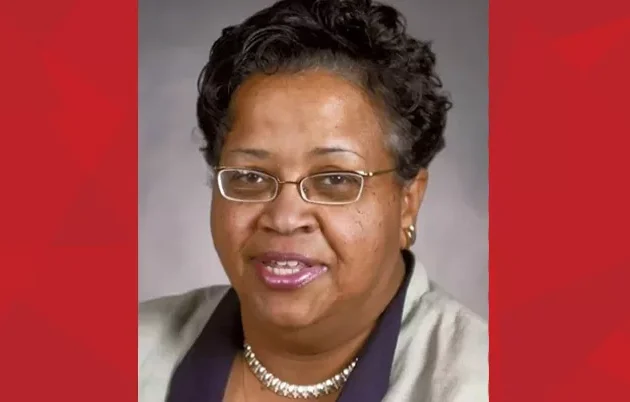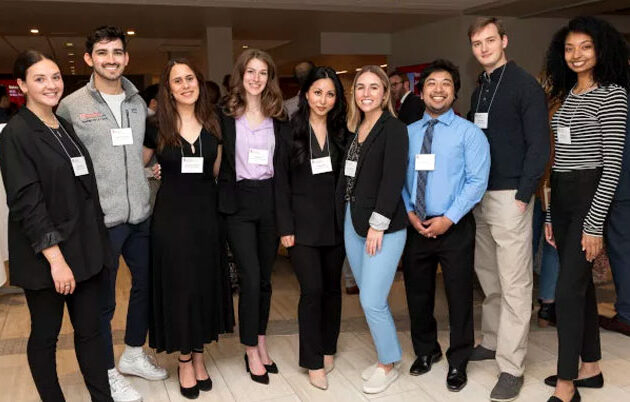Class Notes and Alumni Updates From MPH Graduates
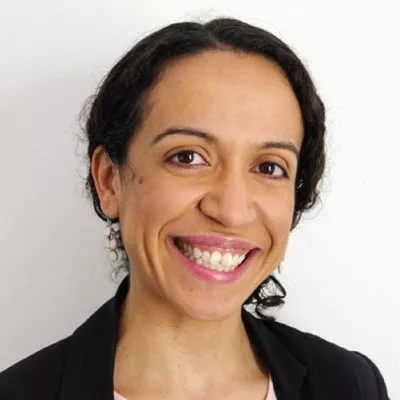
Nayeli A. Spahr, MD ’16, MPH ’16
I am the director of reproductive and child health at Project H.O.M.E., a non-profit organization in Philadelphia with the mission to break the cycle of homelessness and poverty. I work at federally qualified health care centers within Project H.O.M.E. The letters in H.O.M.E. stand for housing, opportunities in employment, medical care and education; these factors perfectly highlight the fundamental ingredients needed to attain mental, physical and emotional well-being.
In my role, I supervise perinatal and young pediatric care, as well as oversee the reproductive and family planning services offered at our sites. I love being able to use my full-spectrum training every day. I also am able to use skills I gained through my master of public health degree to build connections with other local leaders to improve the outcomes and disparities in maternal and infant mortality, and to advocate for improved care coordination across systems.
Before I started medical school, I was not sure what specialty I wanted to pursue. I had never heard of family medicine until I looked into the UW School of Medicine and Public Health, and as it turns out, this field is a perfect fit for me. In my practice, I cultivate a sense of community and partnership with the families I care for in the clinic and beyond it, with the help of an excellent team of nurses, behavioral health counselors, community health workers, peer specialists and social workers, to name a few.
I completed my residency at the Hospitals of the University of Pennsylvania in Philadelphia. Family medicine has allowed me the flexibility to make my practice my own and do what I love — build a community that helps take care of each other. What an honor it is to meet inspirational individuals each day and know they trust that I will take the best possible care of them and their families.
New Experiences, Enduring Relationships
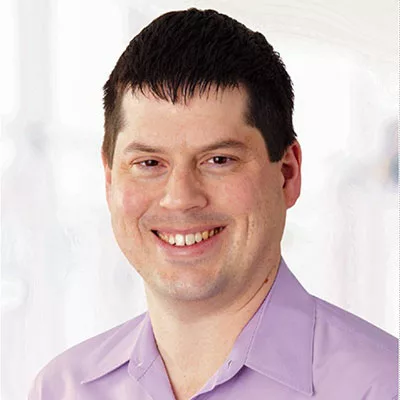
Branden J. Pfefferkorn, MD ’08, MPH ’09
Since I started in family medicine, I have had some amazing privileges. Walking with patients through life-altering and ultimately life-ending diagnoses. Celebrating big wins — complete changes in lifestyle, previous diagnoses falling away. Celebrating small wins — smoking less, blood sugar numbers closer to goal. And a handful of babies, now children, in the world whose parents gave them my first and/or middle name.
I completed the Swedish Medical Center Cherry Hill Family Medicine Residency, with my clinical site at the Seattle Indian Health Board. I then practiced for five years in Seattle, and for the past five years, I have practiced at HealthPartners in Minnesota. During my career, I have already gotten to experience a wide swath of medicine, various practice arrangements and changes in practice geography from the Pacific Northwest back to the Midwest, and more recently, changes in clinical leadership and a new subset of primary care in worksite health care.
What sticks with me through that time are the relationships made along the way and the immense privilege of hearing and sharing stories with patients and colleagues alike. Family medicine is an exceedingly broad discipline, but at its core, it is about relationships, particularly ongoing relationships.
When I started medical school, I wanted to become a family physician. I chose all my medical school experiences around that goal and was privileged to learn from and with some amazing mentors, including Byron Crouse, MD, Cynthia Haq, MD (PG ’87), Douglas Smith, MD ’82, and Sharon Younkin, PhD. I learned at a variety of sites within Wisconsin, including a dedicated block at Mile Bluff Medical Center in Mauston, as well as other domestic and international sites.
These experiences and mentorship have prepared me very well for my career in family medicine and given me the opportunity to adapt to the needs of the population I’m working with, while also referencing the broad scope of medicine in which I’ve participated.
An Advocate for Patients and Pediatrics
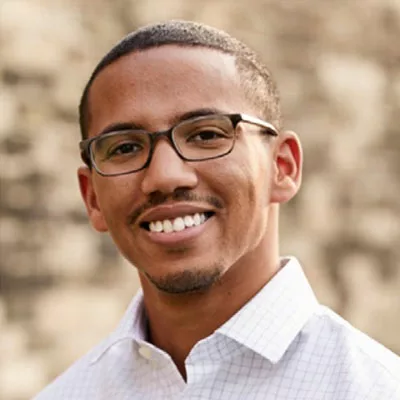
Demarco A. Bowen, MD ’18, MPH ’18
Following my graduation from the UW School of Medicine and Public Health, I completed a global child health residency at Baylor College of Medicine/ Texas Children’s Hospital. I am now completing a pediatric hospital medicine fellowship at University of California, San Diego/Rady Children’s Hospital. These experiences have taught me a great deal about quality improvement, research methodology and medical education for learners in the hospital setting.
Clinically, I take care of kids who have general pediatric illnesses such as bronchiolitis, asthma and acute gastroenteritis, but also many medically fragile children — such as those with gastrostomy and tracheostomy tubes, ventilators, etc. — who require admission for acute-on-chronic illnesses. As a hospitalist, I also take care of children who have as-yet undifferentiated diseases, such as Crohn’s, tuberculosis, or even cancers. As each patient’s and family’s initial primary doctor in the hospital, it’s a privilege to walk with them in the first steps of their diagnostic journey.
One of the best things about pediatrics is the ability to connect with families and work together with caregivers, advocating for the best outcomes for the child. Even in the hospital wards, public health is intrinsic to the work of pediatrics. Preventing illnesses through counseling of caregivers, promoting safe environments, and advocating for better policies for kids is all part of the gig.
If you’re interested in public health and advocacy as a physician, I highly recommend pediatrics. The field affords so many opportunities in your career. Every day, you can advocate for your patients, whether to the parents at the bedside or to legislators in the halls of Congress. In clinic, you can counsel about safety measures and, on behalf of your hospital, work on safety initiatives. The list goes on. Add the feeling of helping kids get through acute illnesses, and pediatrics just can’t be beat.
Class Notes
Class of 2022
Katarina Braun—during the doctoral portion of her MD and PhD degrees at the UW School of Medicine and Public Health— was training with Thomas Friedrich, PhD, and Dave O’Connor, PhD ’01, when the COVID-19 pandemic began. In January 2020, Braun helped sequence and analyze the first confirmed case of SARS-CoV-2 in Wisconsin (12th in the United States). She and a colleague performed viral sequencing and analysis for the state and helped interpret findings for public health recommendations. Braun was inspired by seeing how powerful science and medicine can be when people collaborate across disciplines and departments with a common goal. She was the first author on a study, published in Nature Communications, related to her work sequencing virus samples from Dane and Milwaukee counties and reconstructing viral family trees. The study showed that COVID-19’s R factor fell significantly following the statewide Safer-at-Home order. She co-authored another study, published in Clinical Infectious Diseases, in which she and colleagues sequenced SARS-CoV-2 from health care workers at UW Health and determined that infection control procedures were protecting personnel from infection. Braun is now completing an obstetrics and gynecology residency at Yale University.
Class of 2015
Augustine and Allison Saiz started faculty careers in fall 2022; throughout their training, they have received numerous awards and honors. Augustine Saiz is an assistant professor of orthopaedic surgery in the Division of Orthopaedic Trauma at University of California (UC) Davis; and Allison Saiz is an assistant professor in the Division of Gynecologic Oncology at Kaiser Permanente Northern California and a volunteer clinical faculty member at UC Davis, where she teaches obstetrics and gynecology residents and gynecologic oncology fellows. After medical school, they couples-matched to UC Davis and were married in 2017. Allison Saiz completed an obstetrics and gynecology residency at UC Davis followed by a gynecologic oncology fellowship at Northwestern University; she also earned a master’s degree in health services and outcomes research. Augustine Saiz completed an orthopaedic surgery residency with a year of dedicated research at UC Davis. He also completed a fellowship in orthopaedic traumatology at University of Texas-Houston. He was selected for the Orthopaedic Research Society Clinician Scholar Career Development Program and American Orthopaedic Association C. McCollister Evarts Resident Leadership Forum. He has received research grants and presented at numerous national and international conferences. During her residency, Allison Saiz held leadership roles with the American College of Obstetricians and Gynecologists. She was the first U.S. resident to serve as a Society of Gynecologic Oncology (SGO) congressional ambassador. Her peers elected her as a co-administrative chief resident. Also, she was elected to the SGO Board of Directors as the fellow-in-training representative and joined the Legislative and Regulatory Affairs Subcommittee.
Class of 2011
Erica Knavel Koepsel completed a diagnostic radiology residency at UW Health and an interventional and vascular radiology fellowship at the UW School of Medicine and Public Health. While working at Mayo Clinic in Rochester, Minnesota, she added to her experience in ablation procedures, including those with magnetic resonance imaging (MRI) guidance. With her Mayo team, she has presented at national professional meetings on MRI-guided treatment of vascular malformation, and her work has been published in RadioGraphics. In September 2021, Knavel Koepsel joined the SMPH as an assistant professor in the Section of Interventional Radiology, Department of Radiology. There, she proposed creating a program focused on MRI-guided procedures; so far, she and her team have completed prostate cryoablations and biopsies. She hopes the team can offer MRI-guided ablation of vascular malformations.
Class of 2008
Jordan Olson was reappointed as chair of pathology for HNL Lab Medicine and medical director for Lehigh Valley Health Network (LVHN) in Allentown, Pennsylvania. HNL Lab Medicine is a regional leader in high-quality, innovative laboratory medicine; and LVHN is the region’s leading health care network. Olson is board-certified in clinical pathology, clinical informatics, blood banking and transfusion medicine. Formerly, at Geisinger Medical Laboratories, he served as division chief of clinical pathology informatics and as a faculty member in the Geisinger Health System Clinical Informatics Fellowship Program and the Geisinger Medical Laboratory Residency Program. Olson has published widely in peer-reviewed journals and presented nationally.
Class of 2005
Summer Hanson completed a residency in the SMPH Department of Surgery, Division of Plastic and Reconstructive Surgery. Now an associate professor at the University of Chicago’s Department of Surgery, Section of Plastic and Reconstructive Surgery, she is also the director of plastic surgery research. Her translational research lab studies fat tissue, fat grafting and tissue engineering. Clinically, she specializes in breast microsurgery and lymphedema surgery. Hanson is married to Nick Maassen, MD ’08 (PG ’13), and they have a 6-year-old daughter, Rori.
Class of 2001
O’Rell “Ron” Williams was recognized by Continental Who’s Who as a Trusted Healthcare Professional for his excellence in medicine and in acknowledgment of his work with Ascension-Southeast Wisconsin. He is a regional medical director for the Ascension health care network in Milwaukee. He says he always wanted a career in which he could make a difference in the lives of others. He served for 14 years as a firefighter in Milwaukee. Williams earned a bachelor of science degree in biology from UW-Milwaukee, graduating Magna Cum Laude; earned his medical degree from the SMPH; and completed an internal medicine residency at Aurora Health Care. He enjoys spending time with his two young daughters and playing the guitar.
Class of 1995
Tom Weigel joined Blue Cross and Blue Shield of Vermont as the vice president and chief medical officer. He has a strong interest in health care technology and its ability to measure outcomes, improve access to care and reduce costs. Weigel completed training in psychiatry at Massachusetts General Hospital and in child psychiatry at Children’s Hospital, Boston, both through Harvard Medical School. He received a master’s in business administration degree from Massachusetts Institute of Technology, with a focus on data-driven methods to direct change across organizations and industries. After living in Boston for more than 20 years, he has embraced the rural Vermont lifestyle, living on a farm with his wife, two children, and many dogs, cats, chickens and horses.
Class of 1993
Nancy K. Sweitzer joined the Washington University School of Medicine as vice chair of clinical research for the Department of Medicine and director of clinical research for the Division of Cardiology. She completed graduate medical training in internal medicine, cardiology, echocardiography and heart failure, and transplantation at Brigham and Women’s Hospital and Harvard Medical School. Sweitzer served on the faculty at Harvard Medical School, UW School of Medicine and Public Health, and the University of Arizona Health Sciences. At Arizona, she was the chief of cardiovascular medicine, director of the Sarver Heart Center and co-director of the Clinical Translational Sciences Graduate Program. Having devoted her career to the physiology and multi-organ interactions in heart failure, Sweitzer is an international leader in clinical trials. She is a fellow of the American College of Cardiology, the American Heart Association and the Heart Failure Society of America. She is the past president of the Association of Professors of Cardiology, and she has authored more than 100 papers in peer-reviewed journals. She is editor-in-chief of Circulation: Heart Failure.
Class of 1988
Daniel M. Jorgensen is the new chief executive officer for Critical Path Institute (C-Path) as of October 2022. An experienced leader in drug development, health care and business, he will continue C-Path’s distinguished reputation of collaboration with global stakeholders—including patient groups, academic institutions, the pharmaceutical industry and regulatory agencies—for its next phase of growth and innovation. Jorgensen has more than 24 years of experience in the biopharmaceutical industry, and in public and private companies of all sizes. Before he joined C-Path, he was the CEO at AxoProtego, where he helped guide the neuroscience startup through funding and partnership activities.
